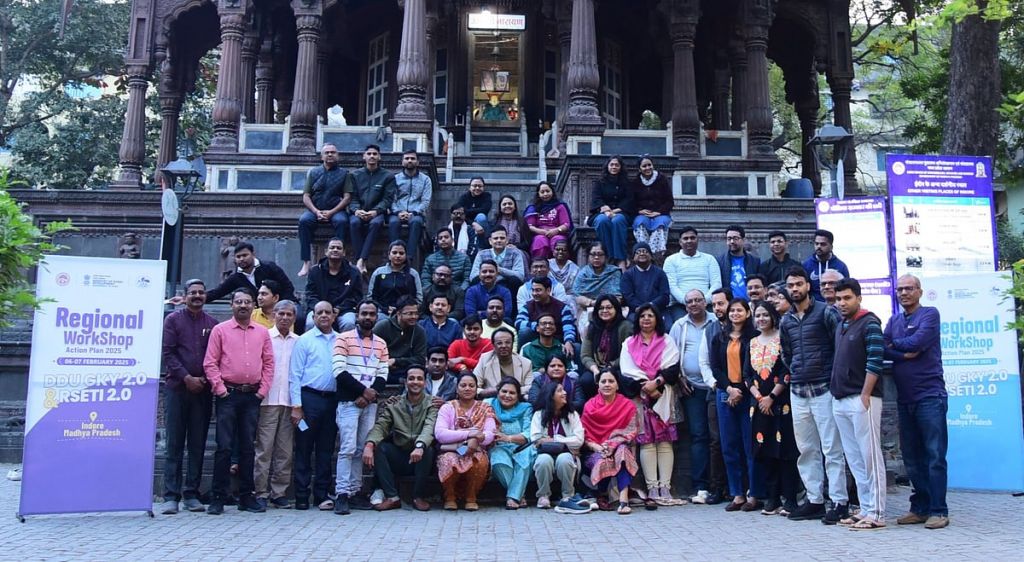
Indore (Madhya Pradesh): Senior Indian Administrative Service (IAS) officers from several states got a glimpse of Indore’s rich history and cultural heritage and observed its sanitation model at a close range during a heritage walk organized here on Friday. The IAS officers, as well as senior officials from the union ministry of rural development and senior officers from state level rural development departments from 8 to 10 states, were here to attend a regional workshop organized from February 5 to 7.
The workshop, held under the aegis of the ministry of rural development, Government of India, focused on discussions and implementation strategies for the new guidelines of the rural skill development and self-employment scheme.
The heritage walk commenced at 7:00 AM from Srimant Chimanjirao Appa Bolia Sarkar’s Chhatri and proceeded through Rajmata Krishna Bai Holkar Sahib’s Chhatri, Gopal Mandir, and concluded at the historic Rajwada. City historian Zafar Ansari educated the participants on Indore’s transformation from an unsanitary city in the mid-19th century to one of the cleanest cities in India. Ansari explained how Maharaja Tukojirao Holkar II laid the foundation for sanitation over a century ago, which was later managed through Indore Municipal Corporation’s health department.
In 1942, compost was made from collected waste and used by the Indore Plant Institute. The walk also highlighted Indore’s historical connection to organic fertilizers, which drew Mahatma Gandhi to the city in 1935 to study the system. Ansari showed rare Holkar-era artifacts from his personal collection, offering attendees a glimpse into Indore’s rich past. As part of the event, IMC Indore distributed cloth bags to all dignitaries with the message ‘Say No to Plastic’. Officials from Indore administration, Indore Smart City and IMC Indore were present on the occasion, reinforcing the city’s commitment to sustainability and cleanliness.